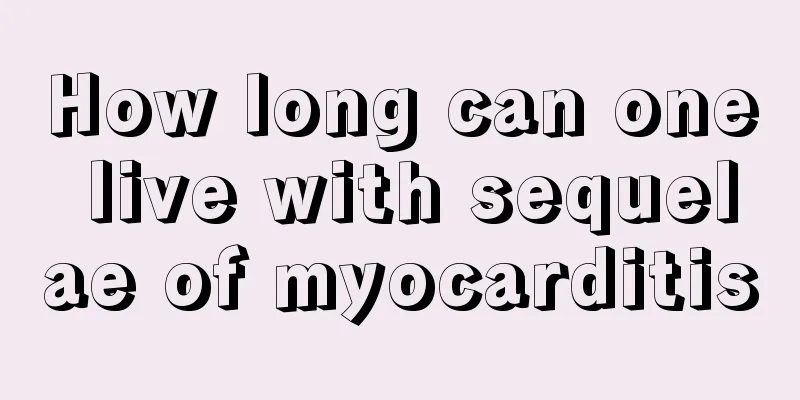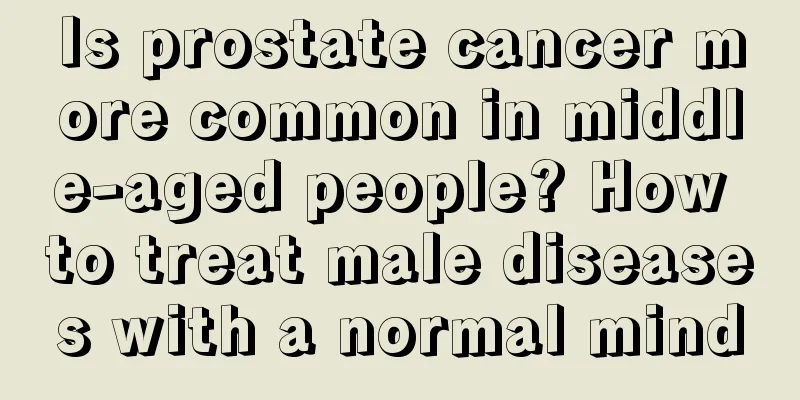How long can one live with sequelae of myocarditis

|
Nowadays, many people suffer from heart diseases. Myocarditis is a relatively common disease. Myocarditis can be cured through treatment, but if sequelae occur. That would be more troublesome to treat. If the sequelae are serious, it is very likely to be life-threatening. So, how long can you live with the sequelae of myocarditis? In fact, as long as reasonable treatment is carried out, life can be prolonged. Most patients with viral myocarditis can recover after proper treatment, but some patients fail to receive timely and correct treatment and proper rest for various reasons, which often leave sequelae, mainly including: ① Various types of premature beats, atrial premature beats are more common; ② Atrioventricular block, I° atrioventricular block is the most common, some patients may have II° atrioventricular block, and very few may have III° atrioventricular block; ③Dilated cardiomyopathy, clinically manifested by progressively worsening symptoms of heart failure. The etiology of the disease mainly includes two aspects: 1. Autoimmune regulatory dysfunction After the virus infects the myocardium, the myocardial immune system is activated. Due to its own factors, the autoimmune regulatory function is disordered, and the immune allergic reaction continues to damage the normal myocardium; 2. Severe myocardial damage After the virus infection, the myocardium is severely damaged and severe fibrotic tissue appears. Clinical manifestations mainly include: 1. Various types of premature beats often last for a long time and tend to increase after a cold, fatigue, excitement or stimulating drinks. They are often manifested as palpitations, atrial premature beats are more common, and some patients may experience ventricular premature beats or even short bursts of ventricular tachycardia; 2. Atrioventricular block I° atrioventricular block is the most common. Some patients may experience II° atrioventricular block, which may lead to palpitations or fatigue symptoms. Very few patients may experience III° atrioventricular block. 3. The condition of some patients with dilated cardiomyopathy may stabilize after several weeks to months, but they may still have a certain degree of heart enlargement, decreased heart function, with or without arrhythmia or electrocardiogram abnormalities, etc. If the condition does not heal for a long time, clinically, symptoms of progressive worsening of heart failure may appear. treat 1. Beta-blockers can be used for patients with obvious symptoms of various types of premature beats and frequent attacks. 2. Patients with atrioventricular block and severe slow ventricular rate need to have a permanent pacemaker implanted. 3. The symptoms of some patients with dilated cardiomyopathy can be controlled to a certain extent after receiving cardiac resynchronization therapy (CRT). |
<<: Sequelae of finger amputation
>>: Are there any sequelae after the hemorrhagic fever is cured?
Recommend
How to prevent liver cancer?
98% of patients with primary liver cancer have he...
What are the benefits of traditional Chinese medicine treatment for ovarian cancer
Ovarian cancer is a malignant tumor that occurs i...
Let straightened hair return to natural state
Nowadays, many people pull their hair. Pulled hai...
Is chemotherapy used after bladder cancer surgery?
Commonly used drugs for chemotherapy instillation...
What are the symptoms of early gastric cancer
What are the symptoms of early stomach cancer? Th...
How to prevent thyroid cancer metastasis? What to do if thyroid cancer metastasis occurs
After suffering from thyroid cancer, surgery shou...
Viral infection combined with bacterial infection and fever
Some harmful bacteria and viruses can cause colds...
Hemoglobin 87
The hemoglobin index is actually very important f...
How to treat chronic nephritis proteinuria with traditional Chinese medicine
When it comes to proteinuria, everyone will say t...
What are the symptoms of left intrahepatic bile duct stones
The liver is one of the important organs in the h...
What vegetables can lower blood pressure? Which vegetables can lower blood pressure?
People with high blood pressure will definitely t...
What are the hazards of gastric cancer? These need attention
There are many dangers of gastric cancer. Bleedin...
Gamma Knife Therapy, a recommended method for treating brain cancer
Gamma Knife is a popular treatment method for bra...
There is mucus in the urethra in the morning, what's going on
Many men may find sticky stuff at the urethral op...
How does traditional Chinese medicine treat cervical precancerous lesions? These 9 types of women are prone to cervical cancer
Cervical cancer occurs all over the world and is ...









